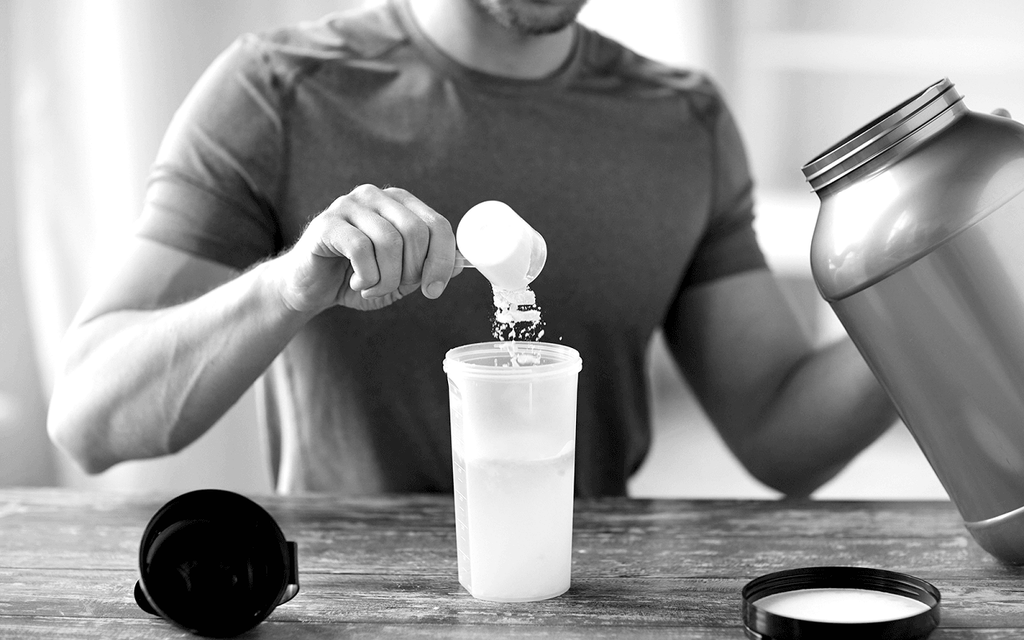You have no items in your shopping cart.

Post-Workout Nutrition That You Should Take
Posted by SupHub Inc. on
Regardless of the reason you are working out, be it to lose weight, gain mass or build muscles, consuming the right amount of nutrients and providing fuel to your body is exceptionally important. What you eat before exercising and what you consume right after plays a huge role in helping you achieve your fitness goals in the healthy way.
When you are working out, your body uses up the stored energy in the form of glycogen and proteins in your muscles for fuel, which results in glycogen depletion in your body. After the exercise session, the body starts to rebuild the glycogen reserves in the body and also tries to regrow and repair muscle proteins. To help your body do that quickly and effectively, you need to consume the right kind of post-work out nutrition.
There are three very important macro-nutrients that are essential for your body’s post-exercise recovery process which you should include in your nutrition meal:
Proteins
Since one of the major aims of post-exercise nutrition is to increase muscle protein synthesis, it is very important for you to consume a lot of protein after exercising. Doing this will help you provide your body with the amino acids it needs to foster protein synthesis in the muscles. The protein will also give your body the building blocks it requires to build new muscle tissues.
According to numerous studies, 20-40 grams of proteins is an adequate amount to consume after exercising to maximize the body’s ability to recover and repair.
Carbohydrates
While working out, your body uses stored glycogen as fuel for energy, therefore, eating food rich in carbohydrates will help replenish the glycogen stores. The carbs will also lead to glycogen synthesis in the body, which, along with protein synthesis, will help the body recover more quickly and efficiently.
Studies recommend that it is best to consume carbs and proteins in a ratio of 3:1, which includes 40 grams of proteins and 120 grams of carbohydrates, for example.
Fats
Contrary to popular belief which proposes that consuming fat after working out slows digestion, fat actually helps in promoting muscle growth. A study showed that consuming whole milk had a better impact on muscle growth after working out than skim milk.
While it is suggested to limit the amount of fat you consume after exercising, one shouldn’t completely remove it from their meal plan.
Now that you are well-informed about which macronutrients you should include in your daily nutritional plan, here are the top and best foods that you can eat to fuel those depleted muscles:
Whey
Because proteins degrade fast when you are working out, you need to consume a lot of it after exercising. Powdered whey protein is one of the best options as one scoop of whey contains nearly as much protein as a whole chicken breast.
Moreover, whey helps the muscles absorb glucose and restock energy stores by producing an insulin spike. Research also shows that people who ingest whey as supplement after working out burn almost twice as much body fat as those who do not consume it. All you need to do is make a juice or a shake using your protein powder to provide maximum fuel to your overworked muscles.
Fruits
Needless to stay, fruits are packed with healthy carbohydrates that are easily digestible by the body. They are also loaded with enzymes that aid our body in breaking down nutrients that can easily be delivered to the muscles.
Pineapple is one such example of a wonderful fruit that is high on anti-inflammatory properties which help the muscles recover from excessive training. Kiwi, on the other hand helps in the breakdown of amino acids and also aids digestion.
Fruits like bananas, watermelon, grapes, blueberries, etc. are known as the best post-exercise fruits since they are rich in minerals, vitamins and antioxidants that help the body recover from exercise. The fast-acting carbs in these fruits also help in building glycogen stores to be used by the muscles.
Eggs
According to a dietician, Leah Mark, “egg is the golden standard”. Eggs contain all nine essential amino acids which are the building blocks for protein and also branched-chain amino acids that help reduce muscle damage in the body. Because eggs have all the essential proteins required by the body, it makes it a complete source of protein without any side effects.
Eggs contain vitamins and minerals that are needed to replenish and repair the body. These are as important as the carbs and proteins for muscle fuel. The yolk of the egg, in particular, contains lots of vitamins such as vitamin B-12, B-6 and A. Eggs also contain essential minerals like magnesium, calcium, copper, zinc, etc. that our body needs for fuel and energy.
Greek yoghurt
Compared to regular yoghurt, this one has double the amount of protein and is also loaded with carbohydrates. Greek yogurt is a wholesome and wonderful nutritious snack post-exercise, and a relatively small portion of it provides a significant amount of proteins.
It works as a great post-exercise replenishment tool too as it helps rebuild glycogen stores and provides proteins for any muscle tears you may experience while working out.
Salmon
Salmon is nutritionally powerful fish which is packed with protein and omega-3s. Omega-3s contain anti-inflammatory properties that help rebuild muscles and also increase performance. They reduce considerable post-exercise muscle inflammation as well that causes soreness.
You could pair your salmon with a side of sweet mashed potatoes or leafy vegetables to provide your body with full and complete nutrition after an intense exercise regimen.
When you are working out and exercising, it is of utmost importance to take care of your diet, health and nutrition. Particular care needs to be taken regarding the pre-post exercise nutrition because that can make or break your body’s ability in terms of dealing with all the exercise pressure.
← Older Post Newer Post →





![6 Things You Should Do Before You Start Working Out [Muscle Building Tips]](http://suphub.com/cdn/shop/articles/muscle_build_small.jpg?v=1497249348)
